The Future of Logistics
There’s a significant transformation happening in Saudi Arabia’s transport and logistics sector due to the adoption of technology and artificial intelligence (AI).1
As part of The Kingdom’s Vision 2030 plans, the country will become a leading, worldwide logistics hub delivering economic diversification to the nation and supporting the advancement of the healthcare industry.
The National Transport and Logistics Strategy has a goal of doubling the sector’s contribution to the gross domestic product, increasing the public transportation share to more than 15% of total trips and reducing carbon emissions from the sector by 2% per capita annually. To achieve this, Saudi Arabia intends to establish 59 logistics zones by 2030 and is deploying advanced technology to make the logistics sector efficient and sustainable, with ambitious plans to deploy self-driving vehicles across its transportation landscape.2
Advanced technologies — such as artificial intelligence (AI), data analytics and robotics — will streamline and optimize various supply chain processes. Predictive maintenance for logistics equipment, data-driven demand forecasting, and robotic warehouse support will enhance operational efficiency and reduce costs.
For the healthcare industry, using technology to enhance logistics will touch almost every part of the supply chain and result in improved patient care and outcomes, reduced medication and supply waste, increased transparency, and overall cost savings throughout the industry.
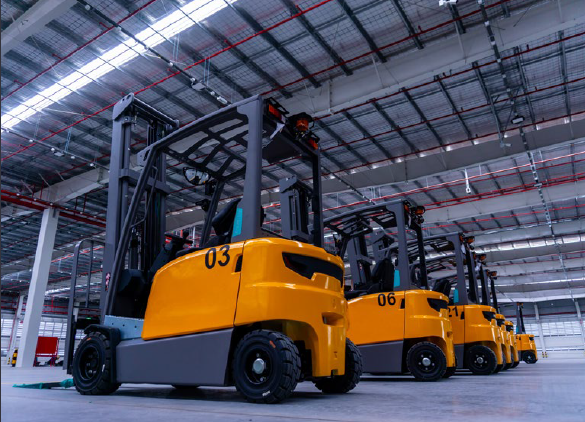
Leading Robotics in Logistics and Warehousing
Saudi Arabia is set to be a prime hub for logistics and warehousing with leading organizations adopting automation and robotics for greater efficiency and optimization.
Automated picking and sorting systems, robotic palletizers, and autonomous guided vehicles (AGVs) streamline operations and reduce human errors. Projections indicate that by 2025 up to 45% of supply chain and manufacturing processes will be handled by robots.3 Warehouses with this technology enable employees to focus on strategic efforts and minimize risks in hazardous environments.4
There are multiple efforts underway to reshape the industry with robotics. The government has created a company called Alat, which has formed a strategic partnership with SoftBank to develop industrial robots and automation infrastructure with the goal of establishing factories across the Kingdom. Alat has an investment budget of US$100B and its robotics project is predicted to contribute $1B to Saudi GDP as soon as 2025.5
Another innovative effort is with Geek+, who creates autonomous mobile robots (AMRs), and Starlinks, a logistics and supply chain solutions provider in Saudi Arabia. The two companies have entered into a strategic partnership to include more than 250 AMRs in a new 400,000ft² fulfillment centre located within Riyadh Logistics Park.6 The robots are focused on picking and order sorting, which will allow a monthly average of 3.6 million orders to be processed.
In the Kingdom, the supply chain and logistics market was currently valued at US$23.83 billion in 2023. With these and other investments, it is projected to see robust growth reaching US$32.88 billion by 2029 with a compound annual growth rate of 5.52%.7
The AI and robotics sector is poised to contribute an estimated US$135.2 billion, equivalent to 12% of the country’s GDP by 2030, according to reports.8
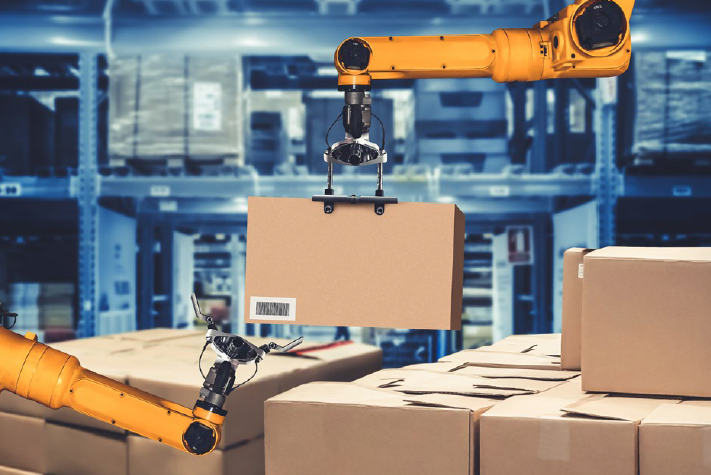
Investing In Warehouse Automation for Local and Global Impact
With Saudi Arabia’s ecommerce sector growing rapidly, there have been major investments in smart warehouses to improve logistics.
A smart warehouse uses AI, robotics, Internet of Things, and other advanced technology to more efficiently manage inventory and supply chain logistics. The benefits include improved accuracy, increased transparency, streamlined operations, and cost savings.
One recent investment in the region is international logistics company, J&T Express. It has announced it is building its MENA regional headquarters in Riyadh as well as the largest smart logistics industrial park in the region together with eWTP Arabia Capital and other partners.9 The logistics park will serve the Vision 2030 goals by making Saudi Arabia a pivotal gateway that bridges Asia, Europe, and Africa. The park will include world-class sorting centers, auto warehousing systems, air cargo terminals, and ecommerce industrial parks. It will foster robust growth in the local retail and manufacturing sectors.
In the healthcare industry, warehouse automation can improve accuracy of orders and support greater transparency around traceability of medication and supplies by providing the ability to track movements and maintain control of orders at a more granular level.
Transforming the future of Mobility with AV Technology
Autonomous vehicle, or AV, technology is rapidly improving due to AI and machine learning capabilities. AV offers substantial economic benefits, such as enhancing safety on roads and other transportation routes, delivery efficiency, improved logistics, more robust urban transport, creative solutions for healthcare and agriculture.10
To drive adoption of AV technology, The Kingdom aims to have 25% of goods transported by AV vehicles by 2030.11
For advancement of both the passenger and logistics sectors, the Saudi government has launched the National Transport and Logistics Strategy (NTLS) in alignment with Saudi Vision 2030.12 The NTLS plans to invest approximately US$133 billion to enhance The Kingdom’s diverse freight transport and logistics capabilities.13 The investments will upgrade existing ports and terminals and develop new ones to introduce new trade routes with the intention of more than quadrupling the country’s annual container throughput by 2030. The Kingdom’s rail network will be expanded significantly to connect the Red Sea and Arabian Gulf ports, while air cargo capacity will be doubled to at least 4.5 million tonnes.
Ambitious projects like the NEOM and Red Sea Global have been developed with sustainable transportation systems at their core, offering autonomous mobility choices such as airtaxis and volocopters, autonomous pods for transporting people and goods.
Furthermore, several mega projects in cities like Al Ula, Thuwal, and Riyadh are also set to provide autonomous vehicles (AVs) as part of their transportation options.14
Adding AVs to the healthcare industry provides an unprecedented opportunity to optimize and transform hospital and clinic operations and improve patient care. Applications range from autonomous delivery robots providing critical medications and smart carts inside of medical facilities to self-navigating patient transport vehicles and drones for device or medication delivery right to patients’ doors.15
The Kingdom’s Transportation General Authority (TGA) is leading a national level Future of Mobility Committee — headed by the Vice Minister of Transportation and Logistics Services (MotLS) — that aims to align the strategies, initiatives and projects and develop a national master plan with incentives for the future of mobility across the country. C4IR Saudi Arabia is teaming up with various organizations, including TGA, MoTLS, King Abdullah University for Science and Technology (KAUST) and the Royal Commission for Al Alu (RCU) to ensure a unified approach to autonomous mobility in the country, and to advance regulation, testing and validation of autonomous mobility solutions.16
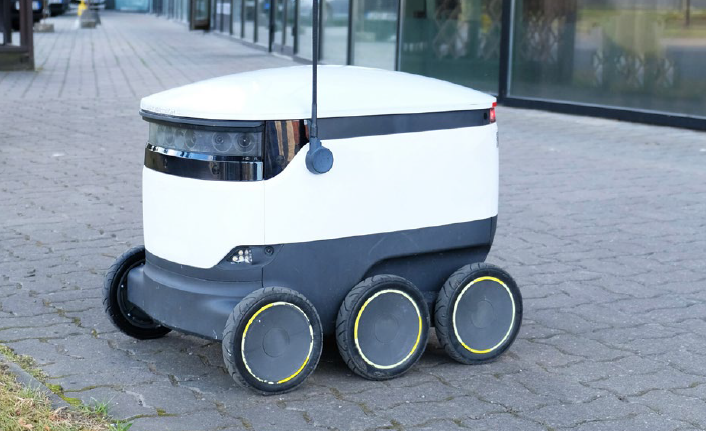
Unifying Logistics in the Kingdom
Advancements in AI will help predict and combat supply chain challenges as the Kingdom strives to become a global logistics hub, according to the CEO of the National Industrial Development and Logistics Program.17
One critical step in the efforts to become a world-leader of logistics is to centralize and organize transport and logistics activities across The Kingdom. Recently, the Ministry of Transport and Logistics signed an agreement with the Digital Government Authority to unify all data under on digital platform Logisti.18 By providing all the activities of the transport sector through a single source, Logisti will increase access and streamline work for the sector across the country. This centralized source of information will mean other industries, like healthcare, can access accurate, up-to-date information about its relevant logistics activities thus more efficiently improving operations.
The Kingdom’s plan to become a worldwide logistics hub and deliver economic diversification to the nation as part of the Vision 2030 is moving forward at a rapid pace.
One critical step in the efforts to become a world-leader of logistics is to centralize and organize transport and logistics activities across The Kingdom.
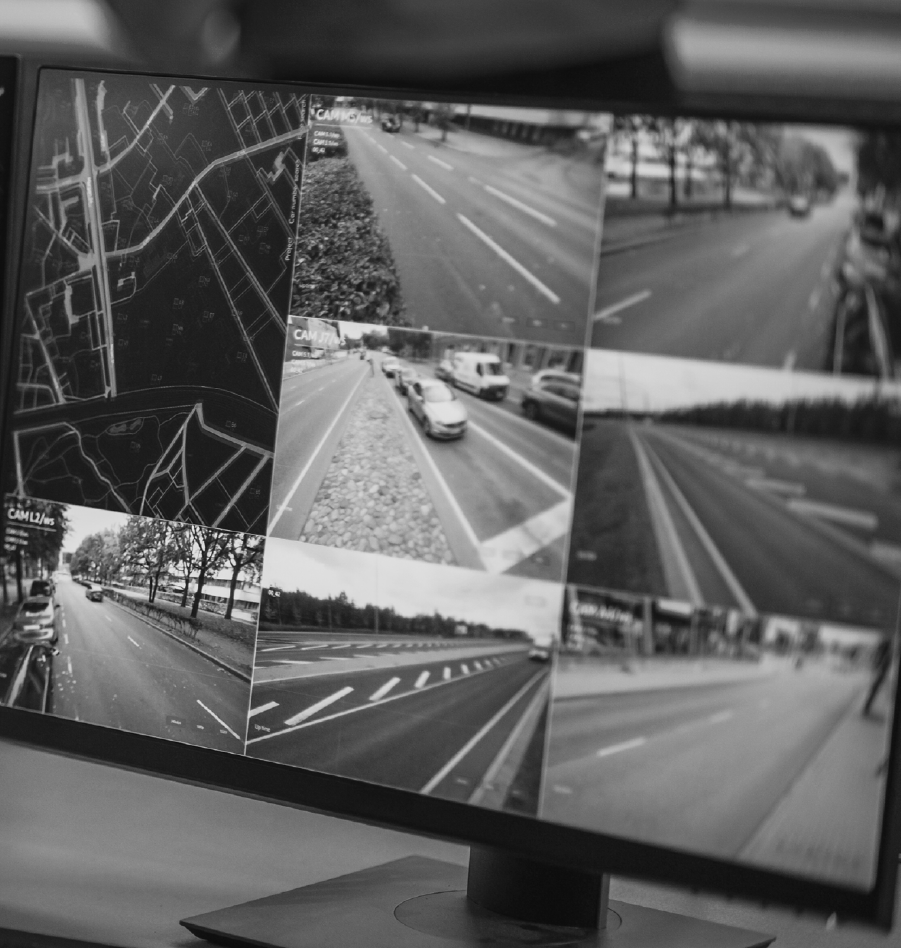
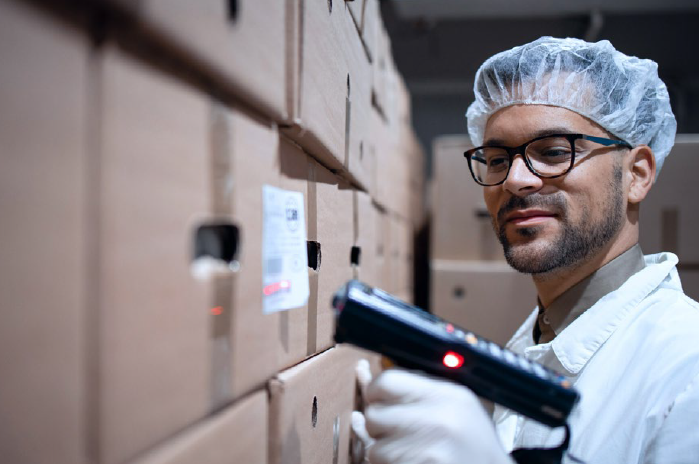
Saudi Arabia has been actively hosting a series of high-profile logistics conferences across the country, serving as a catalyst for innovation and technological advancement, the kingdom is propelling towards a more efficient and interconnected logistics ecosystem.
One key event annually is LEAP 2024 that fosters collaboration between the public and private sectors, accelerating the adoption of cutting-edge technologies such as blockchain, IoT, and AI, thereby optimizing supply chain processes, enhancing transparency, and improving overall operational efficiency. Due to a high commitment of government investments and the widespread adoption of digital technology like AI and AV across many industries, including healthcare, companies in Saudi Arabia are increasingly recognizing the critical role of supply chain and logistics in their operations, embracing innovative practices and technologies such as command centers and control towers to enhance efficiency and responsiveness.
With such collaborations and commitment, the future of the logistics industry in Saudi Arabia is set to cement the country as a global logistics leader for decades to come.
REFERENCES
1 https://www.arabnews.com/node/2404091/business-economy
2 https://fastcompanyme.com/news/ai-fueling-logistics-sector-transformation-in-saudi-arabia/
3 https://www.arabnews.com/node/2470211
4 https://www.swisslog.com/en-gb/about-swisslog/newsroom/news-press-releases-blog-posts/2023/11/swisslog-to-drive-logistics-innovation-in-saudi-arabia
5 https://drivesncontrols.com/news/fullstory.php/aid/7596/$100bn_plan_aims_to_make_Saudi_Arabia_a_leader_in_automation.html
6 https://www.roboticsandautomationmagazine.co.uk/news/events-news/geek-to-automate-logistics-facility-in-saudi-arabia-with-more-than-250-amrs.html
7 https://www.arabnews.com/node/2470211
8 https://www.dcvelocity.com/articles/59327-report-saudi-arabia-to-see-jump-in-robotics-market-to-meet-logistics-demand
9 https://www.prnewswire.com/news-releases/jt-express-setsup-its-mena-regional-headquarters-in-saudi-arabia-and-signs-a-mou-on-the-largest-smart-logistics-park-in-the-region-301472912.html
10 https://www.weforum.org/agenda/2023/10/saudi-arabia-s-roadmap-to-autonomous-mobility-3-key-aspects-for-success/
11 https://fastcompanyme.com/news/ai-fueling-logistics-sector-transformation-in-saudi-arabia/
12 https://fastcompanyme.com/news/ai-fueling-logistics-sector-transformation-in-saudi-arabia/
13 https://www.ajot.com/premium/ajot-saudi-arabias-vision-2030-program-designed-tobuild-global-logisticshub#:~:text=The%20National%20Transport%20and%20Logistics,freight%20transport%20and%20logistics%20capabilities
14 https://www.weforum.org/agenda/2023/10/saudi-arabia-s-roadmap-to-autonomous-mobility-3-key-aspects-for-success/
15 https://www.mdpi.com/2079-9292/12/23/4791#:~:text=The%20integration%20of%20autonomous%20vehicles%20into%20healthcare%20 provides%20an%20unprecedented,of%20modern%20healthcare%20%5B1%5D.
16 https://www.weforum.org/agenda/2023/10/saudi-arabia-s-roadmap-toautonomous-mobility-3-key-aspects-for-success/
17 https://www.arabnews.pk/node/2163131/business-economy 18 https://www.arabnews.com/node/2347326/business-economy


